All Stories
-
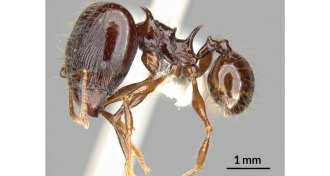 Animals
AnimalsNewly discovered big-headed ants use spines for support
Two newly discovered ant species provide new insights into spiny evolution.
-
 Earth
EarthNew scenario proposed for birth of Pacific Plate
The Pacific tectonic plate formed at the junction of three other plates and above of the remains of a submerged plate, geophysicists propose.
-
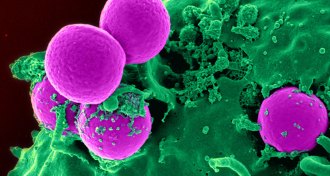 Life
LifeThe nose knows how to fight staph
A bacterium isolated from the nose produces a new antibiotic active against resistant pathogens.
By Eva Emerson -
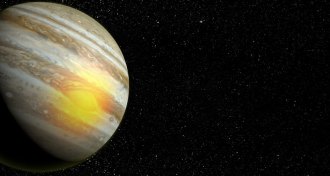 Planetary Science
Planetary ScienceJupiter’s Great Red Spot is hot
High temperatures over Jupiter’s Great Red Spot suggest that storms pump heat into the atmosphere and warm the entire planet.
-
 Chemistry
ChemistryVaping’s toxic vapors come mainly from e-liquid solvents
New study homes in on a primary source of toxic vaping compounds: the thermal breakdown of solvents used to dissolve flavorings in e-liquids. And older, dirtier e-cigs generate more of these toxicants, study shows.
By Janet Raloff -
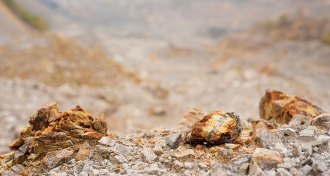 Earth
EarthIron-loving elements tell stories of Earth’s history
By studying geochemical footprints of rare elements, researchers get a glimpse of the planet’s evolution.
-
 Animals
AnimalsNeonicotinoids are partial contraceptives for male honeybees
Male honeybees produce less living sperm if raised on pollen tainted with neonicotinoids, tests show.
By Susan Milius -
 Animals
AnimalsNeonicotinoids are partial contraceptives for male honeybees
Male honeybees produce less living sperm if raised on pollen tainted with neonicotinoids, tests show.
By Susan Milius -
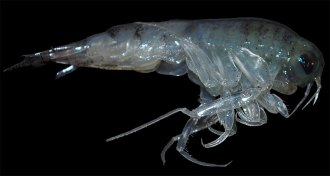 Oceans
OceansSea ice algae drive the Arctic food web
Even organisms that don’t depend on sea ice depend on sea ice algae, a new study finds. But Arctic sea ice is disappearing.
-
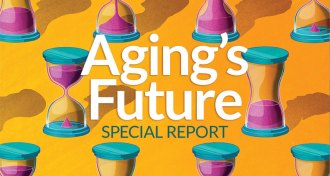
Science News reporters answer your questions about aging
Three Science News reporters will answer questions related to a special issue on aging in a Reddit AMA on Tuesday, July 26, at 3 p.m. EDT.
-
 Genetics
GeneticsDolly the Sheep’s cloned sisters aging gracefully
Cloning doesn’t cause premature aging in sheep.
-
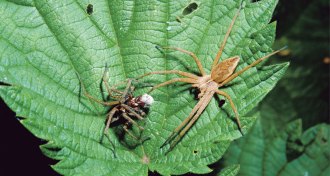 Animals
AnimalsTo prevent cannibalism, bring chocolate
If a date goes bad for a nursery web spider, a romantic gift can serve as a shield.
By Susan Milius